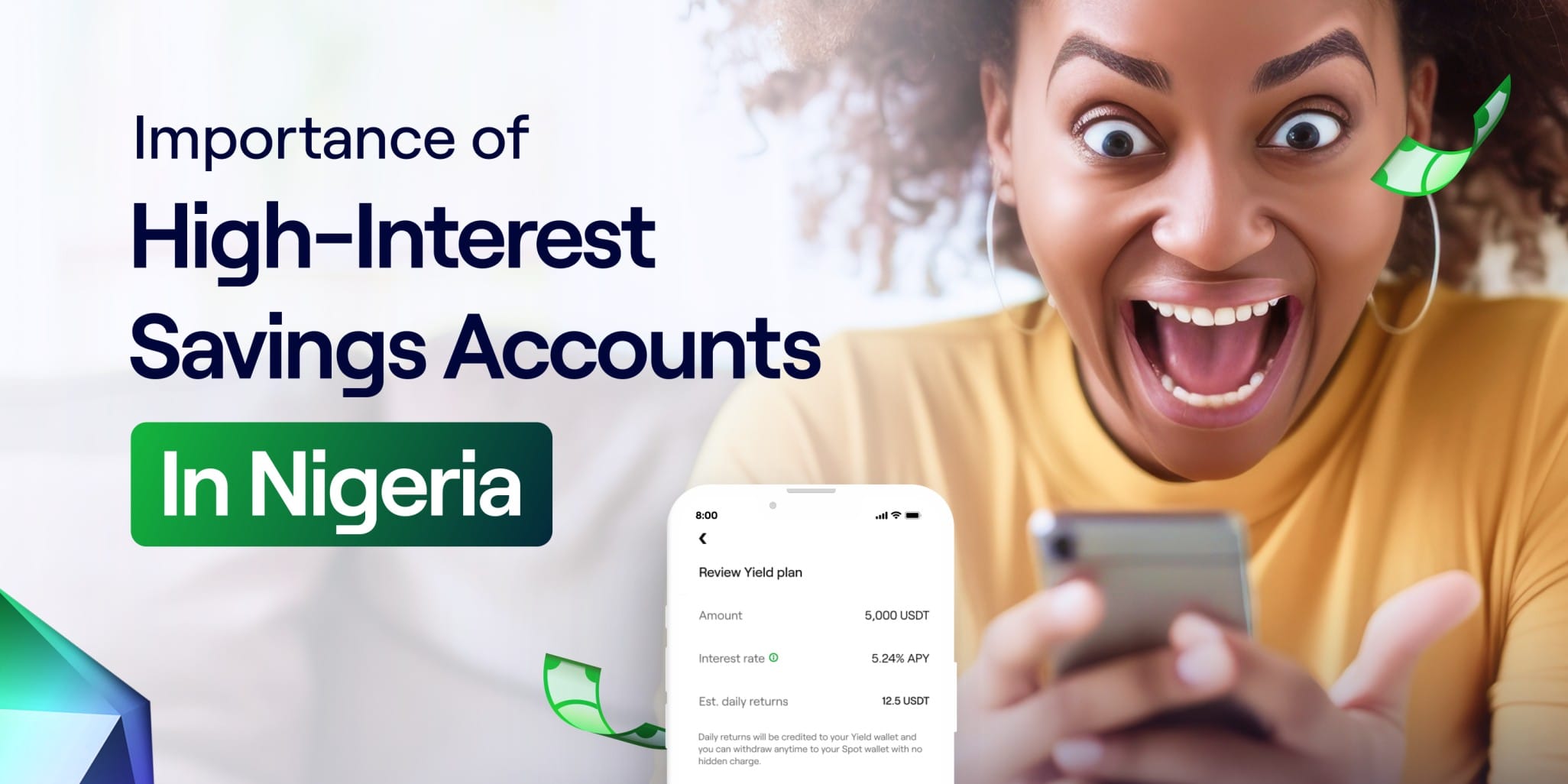Five Account Types You Should Have in Nigeria
Becoming wealthy in Nigeria requires more than just hard work—it requires smart financial planning and disciplined money management. In a rapidly growing economy with both opportunities and risks, how you manage your money could determine your financial future. One critical aspect of wealth-building is having the right types of financial accounts.
In this article, we will break down the five account types you should have in Nigeria, explaining their purposes, benefits, and how each contributes to your journey toward financial freedom. Whether you’re a salary earner, entrepreneur, or investor, these accounts will help you build, manage, and grow your wealth systematically.
1. Savings Account – The Foundation of Financial Discipline
The first among the five account types you should have in Nigeria is a savings account. It is the most basic and essential financial tool, serving as the cornerstone of every financial plan.
Why It Matters:
A savings account helps you accumulate funds in a secure place, earn interest, and develop the habit of saving regularly. It acts as your buffer against emergencies and a platform for short-term goals.
Features to Look For:
-
Zero or low maintenance fees
-
High interest rate (especially in fintech apps like PiggyVest, Cowrywise, Kuda, etc.)
-
Easy access through ATMs and mobile banking
Tips to Maximize:
-
Set automated transfers from your current account to savings
-
Use it to build an emergency fund (3–6 months of expenses)
-
Avoid unnecessary withdrawals
In a volatile economy like Nigeria’s, having a savings account gives you the cushion you need to stay afloat during tough times while preparing for bigger financial moves.
2. Current Account – For Business and Income Flow
The second on our list of five account types you should have in Nigeria is a current account. This is particularly important for business owners, freelancers, and anyone who deals with large or frequent transactions.
Why It Matters:
A current account allows unlimited withdrawals and deposits, making it ideal for daily financial operations. Most clients, especially corporate organizations, prefer paying into a current account. It also signals financial professionalism and credibility.
Benefits:
-
Enables higher transaction volumes
-
Supports cheques, standing orders, and overdrafts
-
Can be linked with other financial services
Pro Tips:
-
Open separate current accounts for business and personal use
-
Always maintain a positive balance to build good credit relationships
-
Choose a bank with strong online platforms for ease of transactions
Having a current account shows you’re ready to do business and handle large income flows. This is critical if you aim to scale financially in Nigeria.
3. Domiciliary Account – Gateway to Foreign Income and Investments
One of the most overlooked yet powerful of the five account types you should have in Nigeria is the domiciliary (dom) account. This is an account that allows you to receive and hold foreign currencies like USD, EUR, or GBP.
Why It Matters:
With Nigeria’s fluctuating exchange rates and naira depreciation, earning and saving in foreign currencies is a smart wealth-building strategy. A dom account gives you access to global earning opportunities and lets you protect your wealth from local economic instability.
Advantages:
-
Receive payments from international clients (e.g., freelancing, e-commerce)
-
Save in stronger currencies to hedge against inflation
-
Invest in foreign stocks or digital assets
Real Wealth Hack:
Use platforms like Payoneer or Wise to receive foreign payments, and withdraw them directly into your domiciliary account for higher black-market conversion rates.
In a world moving toward globalization, having a domiciliary account is essential. It opens doors to global income streams—one of the smartest paths to long-term wealth in Nigeria.
4. Investment Account – Grow Your Wealth Passively
Fourth on the list of five account types you should have in Nigeria is an investment account. While savings protect your money, investments grow it. This account enables you to buy shares, bonds, mutual funds, real estate trusts (REITs), or participate in agricultural funding platforms.
Why It Matters:
To truly build wealth, you need compound interest and long-term capital appreciation. An investment account provides exactly that. Over time, invested funds outperform regular savings and beat inflation.
Investment Platforms in Nigeria:
-
Trove (stocks and ETFs)
-
Risevest (global dollar investments)
-
Bamboo (US stocks)
-
Chaka (local and international shares)
-
Cowrywise/PayVest (mutual funds and fixed income)
How to Maximize:
-
Start with small, consistent contributions
-
Diversify across stocks, fixed income, and alternative investments
-
Reinvest dividends for compounding
Those who understand and use investment accounts often retire early or build multiple income streams. If you truly want to get rich in Nigeria, you must not ignore this account type.
5. Retirement/Pension Account – Secure Your Future Wealth
Last but not least in the five account types you should have in Nigeria is a retirement or pension account. While many young Nigerians ignore retirement planning, the truth is that wealth without security in old age is incomplete.
Why It Matters:
Retirement accounts force you to save and invest a portion of your income for long-term wealth preservation. This is crucial in a country where government pensions are often unreliable.
Types in Nigeria:
-
RSA (Retirement Savings Account): Managed by PFAs (Pension Fund Administrators)
-
Micro Pension Plans: For informal sector and freelancers
-
Voluntary Contributions: You can add more to your mandatory pension plan
Benefits:
-
Compulsory savings lead to discipline
-
Tax relief on contributions
-
Compound interest over time
Some people who invested in pension and retirement accounts now live comfortably without working. If you truly desire lasting wealth, this account is a must-have.
Why These Five Account Types Matter in Nigeria
Understanding the five account types you should have in Nigeria is not just financial theory—it’s practical strategy. Nigeria’s economic reality is one of uncertainty: inflation, unemployment, currency devaluation, and volatile business climates. To navigate this and still build wealth, you need financial systems in place.
Let’s recap how each account plays a role:
| Account Type | Purpose | Wealth Impact |
|---|---|---|
| Savings Account | Emergency fund, short-term goals | Financial safety and discipline |
| Current Account | Day-to-day business and high-volume transactions | Income management and credibility |
| Domiciliary Account | Receive & save foreign currency | Currency hedging and global earning |
| Investment Account | Stocks, funds, long-term wealth growth | Passive income and capital appreciation |
| Retirement Account | Pension planning | Long-term wealth preservation |
Mistakes to Avoid When Managing These Accounts
Even with the five account types you should have in Nigeria, mismanaging them could derail your plans. Here are common pitfalls to avoid:
-
Using one account for everything: This causes confusion, poor tracking, and lack of structure.
-
Mixing business and personal finances: Always separate current accounts for business and personal use.
-
Ignoring investment risks: Research before you invest. Don’t fall for Ponzi schemes.
-
Neglecting retirement planning: Don’t assume you’re too young to start saving for retirement.
-
Keeping all money in naira: In times of economic instability, a domiciliary account is a life-saver.
Real-Life Examples of Nigerian Millionaires Using These Accounts
1. Tayo Oviosu (Founder, Paga)
Tayo reportedly used domiciliary accounts to receive startup funding and investment. His global reach started with structured financial tools.
2. Linda Ikeji (Media Mogul)
Linda used her current account to manage advertising revenue, while investing in real estate and stocks for long-term growth.
3. Iyin Aboyeji (Co-founder, Flutterwave)
With global investments and income streams, his use of multiple account types, especially domiciliary and investment accounts, helped him scale into the dollar-millionaire category.
These success stories underline why the five account types you should have in Nigeria aren’t optional—they’re essential.
Final Thoughts
Becoming wealthy in Nigeria is no longer just about hustle—it’s about structure. The smartest people aren’t just working hard, they’re managing their money in the right financial containers.
By setting up and managing these five account types you should have in Nigeria, you’re laying the groundwork for financial growth, stability, and freedom. Each account serves a unique purpose, and together, they form a complete system for wealth building.















Add Comment